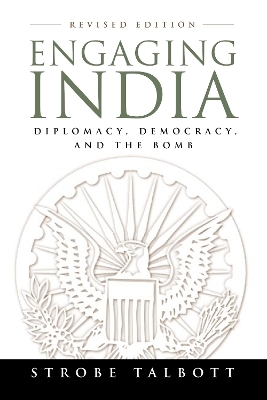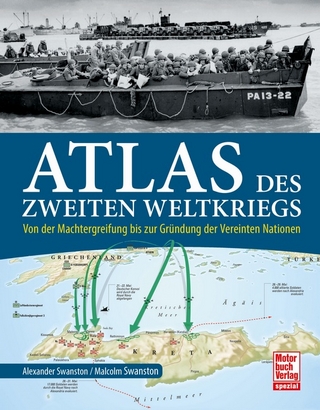
Engaging India
Diplomacy, Democracy, and the Bomb
Seiten
2006
|
Second Edition
Brookings Institution (Verlag)
978-0-8157-8301-5 (ISBN)
Brookings Institution (Verlag)
978-0-8157-8301-5 (ISBN)
In this revised edition of the highly praised Engaging India, Strobe Talbott updates his bestselling diplomatic account of America's parallel negotiations with India and Pakistan over nuclear proliferation in the late 1990s.
On May 11, 1998 , three nuclear devices exploded under the Thar, or Great Indian Desert, shaking the surrounding villages—and the rest of the world. The immediate effect was to plunge U.S.-India relations, already vexed by decades of tension and estrangement, into a new acrimonious standoff. The situation deteriorated further when Pakistan responded with a test of its own two weeks later.
Engaging India is the revealing, authoritative account of the intensive talks that the United States conducted on parallel tracks with the South Asian nuclear powers over the next two and a half years. Bill Clinton's point man for that high-stakes diplomacy takes us behind the scenes of one of the most intriguing and consequential political dramas of our time, reconstructing what happened—and why—with narrative verve, rich human detail, and penetrating analysis.
From June 1998 through September 2000, in the most extensive engagement ever between the United States and India, Deputy Secretary of State Strobe Talbott and Minister of External Affairs Jaswant Singh met fourteen times in seven countries on three continents. They grappled with the urgent issue of arms control and nonproliferation, but they also discussed their visions for the U.S.-Indian relationship, the potential for economic and strategic cooperation between the two countries, and the implications of Hindu nationalism for the evolution of Indian society, politics, and security. Their personal rapport helped raise the level of trust between the two governments. As a result, the United States was able to play a crucial role in defusing the crisis between India and Pakistan over the contested territory of Kashmir in the summer of 1999—thus, perhaps, averting a war that could have escalated to nuclear conflagration.
The Talbott-Singh dialogue laid the ground for Clinton's transformational visit to South Asia in March 2000. That presidential journey opened a new chapter in relations between the United States and India. It also set the scene for U.S. cooperation with both India and Pakistan in the war against terror after September 11, 2001.
In addition to providing an insider's perspective on a fascinating and instructive episode in diplomatic history, the story told here is vital background for understanding what happens next in a region that is home to nearly a quarter of humanity and that was, at the beginning of the twenty-first century, “the most dangerous place on earth”.
On May 11, 1998 , three nuclear devices exploded under the Thar, or Great Indian Desert, shaking the surrounding villages—and the rest of the world. The immediate effect was to plunge U.S.-India relations, already vexed by decades of tension and estrangement, into a new acrimonious standoff. The situation deteriorated further when Pakistan responded with a test of its own two weeks later.
Engaging India is the revealing, authoritative account of the intensive talks that the United States conducted on parallel tracks with the South Asian nuclear powers over the next two and a half years. Bill Clinton's point man for that high-stakes diplomacy takes us behind the scenes of one of the most intriguing and consequential political dramas of our time, reconstructing what happened—and why—with narrative verve, rich human detail, and penetrating analysis.
From June 1998 through September 2000, in the most extensive engagement ever between the United States and India, Deputy Secretary of State Strobe Talbott and Minister of External Affairs Jaswant Singh met fourteen times in seven countries on three continents. They grappled with the urgent issue of arms control and nonproliferation, but they also discussed their visions for the U.S.-Indian relationship, the potential for economic and strategic cooperation between the two countries, and the implications of Hindu nationalism for the evolution of Indian society, politics, and security. Their personal rapport helped raise the level of trust between the two governments. As a result, the United States was able to play a crucial role in defusing the crisis between India and Pakistan over the contested territory of Kashmir in the summer of 1999—thus, perhaps, averting a war that could have escalated to nuclear conflagration.
The Talbott-Singh dialogue laid the ground for Clinton's transformational visit to South Asia in March 2000. That presidential journey opened a new chapter in relations between the United States and India. It also set the scene for U.S. cooperation with both India and Pakistan in the war against terror after September 11, 2001.
In addition to providing an insider's perspective on a fascinating and instructive episode in diplomatic history, the story told here is vital background for understanding what happens next in a region that is home to nearly a quarter of humanity and that was, at the beginning of the twenty-first century, “the most dangerous place on earth”.
Strobe Talbott is president of the Brookings Institution. He served as deputy secretary of state from 1994 to 2001. For twenty-one years prior to his service in government, he was correspondent and columnist for Time magazine . He has written nine books, including The Russia Hand: A Memoir of Presidential Diplomacy (Random House, 2002), a personal account of U.S. diplomacy toward Russia during the Clinton administration.
| Erscheint lt. Verlag | 1.5.2006 |
|---|---|
| Sprache | englisch |
| Maße | 152 x 230 mm |
| Gewicht | 399 g |
| Themenwelt | Natur / Technik ► Fahrzeuge / Flugzeuge / Schiffe ► Militärfahrzeuge / -flugzeuge / -schiffe |
| Sozialwissenschaften ► Politik / Verwaltung ► Staat / Verwaltung | |
| ISBN-10 | 0-8157-8301-9 / 0815783019 |
| ISBN-13 | 978-0-8157-8301-5 / 9780815783015 |
| Zustand | Neuware |
| Haben Sie eine Frage zum Produkt? |
Mehr entdecken
aus dem Bereich
aus dem Bereich
von der Machtergreifung bis zur Gründung der Vereinten Nationen
Buch | Softcover (2023)
Motorbuch Verlag
24,90 €


